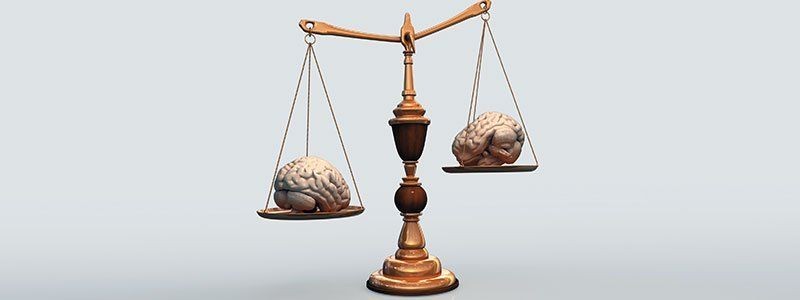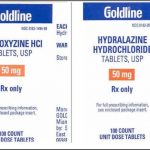
Contents
- 1 Herbs: Toxicities and Drug Interactions
- 1.0.1 Chamomile drug interactions
- 1.0.2 Echinacea drug interactions
- 1.0.3 St. John’s Wort drug interactions
- 1.0.4 Garlic drug interactions
- 1.0.5 Feverfew drug interactions
- 1.0.6 Ginkgo Biloba drug interactions
- 1.0.7 Ginseng drug interactions
- 1.0.8 Ginger drug interactions
- 1.0.9 Saw Palmetto drug interactions
Herbs: Toxicities and Drug Interactions
Conventional medication can have side effects. These effects are described and reported after drug trials and research studies. Information about drug interactions, usage in pregnancy and while breastfeeding, and dosing limits are available for doctors in standard references. The formulations of drugs must satisfy quality control standards to ensure consistency.
In contrast, unconventional treatments like herbs have little scientific basis, making it difficult for doctors to provide guidance on usage or potential toxicity. There are no standardized references and herbal formulations vary greatly.
Furthermore, even if an herb has a known toxicity, the manufacturer may not warn consumers because there are no regulations or supervision.
These "supplements" are not sanctioned or regulated by any agency.
Data is slowly emerging. Dr. Lucinda Miller of Texas Tech University Health Sciences conducted a review of herb-drug interactions, which was published in the medical journal Archives of Internal Medicine. The following list summarizes various herbs and their potential interactions with drugs.
It’s important to note that the information in the "Uses" section is unsupported by scientific studies. Herbs, despite being "natural," can still have side effects.
Chamomile drug interactions
- Uses: Chamomile is often used as a sedative in tea form.
- Drug interactions: Allergic reactions can occur, especially in those allergic to ragweed. Close monitoring is recommended for patients taking blood clotting medications (anticoagulants) like warfarin.
Echinacea drug interactions
- Uses: Echinacea is believed to boost the body’s ability to fight off infection.
- Drug interactions: The most common side effect is an unpleasant taste. Echinacea can cause liver toxicity and should be avoided with other medications that affect the liver.
St. John’s Wort drug interactions
- Uses: St. John’s Wort is used for depression, anxiety, and sleep disorders.
- Drug interactions: The most common side effect is sun sensitivity. St. John’s Wort should be avoided with medications that increase sun sensitivity, as well as serotonin reuptake inhibitor medications.
Garlic drug interactions
- Uses: Garlic is used to lower blood pressure and cholesterol.
- Drug interactions: Allergic reactions, skin inflammation, stomach upset, and decreased sperm production have been reported. Garlic may affect blood clotting and should be used cautiously with anticoagulant medications.
Feverfew drug interactions
- Uses: Feverfew is commonly used for migraine headaches.
- Drug interactions: Feverfew can cause allergic reactions, reduce the effectiveness of nonsteroidal anti-inflammatory drugs (NSAIDs), and impair blood clotting. It should be avoided with anticoagulant medications.
Ginkgo Biloba drug interactions
- Uses: Ginkgo Biloba is used to treat dementia and improve thinking.
- Drug interactions: Mild stomach upset and headache have been reported. Ginkgo Biloba has blood thinning properties and should not be taken with medications that affect blood clotting or seizure medicines.
Ginseng drug interactions
- Uses: Ginseng is used to increase energy and may have an effect on blood sugar.
- Drug interactions: Ginseng can cause elevation in blood pressure, headache, vomiting, and nose bleeding. It may also affect blood test results for digoxin levels and blood clotting. It should be avoided with medications that affect blood clotting, aspirin, and hormonal therapies.
Ginger drug interactions
- Uses: Ginger is used to treat nausea and bowel spasms.
- Drug interactions: Ginger may thin the blood and should not be taken with anticoagulant medications.
Saw Palmetto drug interactions
- Uses: Saw Palmetto is most commonly used for enlarged prostate.
- Drug interactions: Saw Palmetto can cause upset stomach and may affect sexual drive or performance. It should be used with caution with hormonal therapies.
This list only covers a small portion of herbal treatments. The use of herbal therapies is popular, but doctors have limited knowledge about their effects and interactions with medications.
Medically reviewed by John A. Daller, MD; American Board of Surgery with subspecialty certification in surgical critical care
L. Miller. "Herbal Medicinals." Archives of Internal Medicine 1998;158:2200-2209.
UpToDate. Clinical use of saw palmetto.


